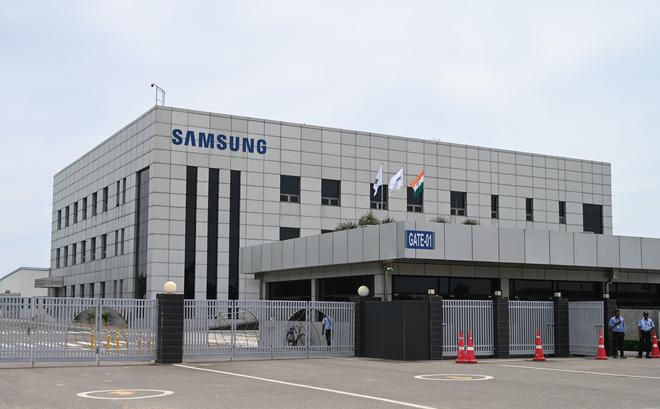Kanchipuram, Tamil Nadu’s thriving auto and electronics manufacturing hub, is hitting some speed bumps. The surge in trade union activities in the wake of the 37-day protest at Samsung is raising concerns among investors and business leaders as they fear operations could no longer be a smooth ride.
It all began when some workers at Samsung Chennai — backed by the Centre of Indian Trade Unions (CITU) — demanded union recognition. The suspension of three union-affiliated employees fuelled the unrest further. With production disruptions at Samsung alone reportedly causing a $100 million loss, businesses across the Sriperumbudur-Oragadam belt—home to global giants like Foxconn, Renault Nissan, and Dell—are beginning to ask: Is Tamil Nadu’s industrial stability at risk?
Short-circuiting the ecosystem
KR Shyam Sundar, Professor of Practice at the Management Development Institute (MDI) in Gurgaon, believes the outcome of the Samsung dispute will have far-reaching consequences for the entire electronics ecosystem in Tamil Nadu.
“Samsung wants to send a clear message that it will only negotiate with a non-political union,” he said. “But this approach could lead to short-term supply chain disruptions and may push more workers in the region towards unionisation.”
Unlike Maharashtra, Gujarat, or Karnataka, Tamil Nadu lacks a legal mandate requiring companies to recognise and negotiate with trade unions—a gap that experts say has contributed to the current standoff.

Samsung India factory at Sriperumbudur, Chennai.
| Photo Credit: BIJOY GHOSH
The Tamil Nadu government now finds itself in a delicate position — balancing its pro-industry stance with the growing influence of trade unions, who have political backing. Developmental economist Venkatesh Athreya suggests that the government has many ways in which it could intervene.
Expanding Union Influence
Meanwhile, the union movement is spreading. CITU State President A. Soundararajan revealed that the union already has a presence in around 60 units and has got requests from workers in over 250 other units to form unions. This has perturbed companies. “It’s a negative vibe,” said an executive at a large component manufacturing firm
The Sriperumbudur and Oragadam belt, one of India’s largest automobile and electronics clusters, has already seen labour unionisation at Yamaha and Royal Enfield in recent years. Now, Samsung has been hit too.
An official from a large company in Oragadam said, “If this continues, investors will shy away from Tamil Nadu — just like what happened with Kitex in Kerala.”
Senior advocate S Ravindran noted that industrial unrest in Sriperumbudur and nearby clusters has been growing due to “unrealistic and outdated” agendas of certain trade unions. He urged the State government to play a more active role, invoking provisions under Section 10(3) and 10-B of the Industrial Disputes Act to refer disputes for adjudication and prohibit strikes and lockouts in critical establishments.
(With inputs from Sindhu Hariharan)



